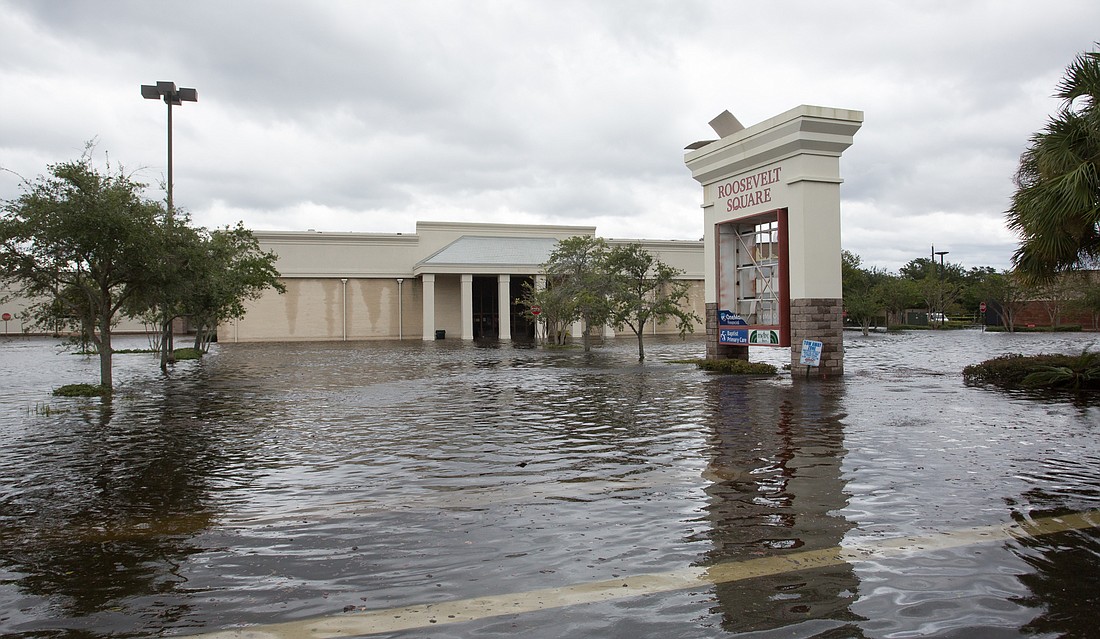
Hurricane Irma will affect economic development efforts to the extent the city and state allow.
Companies and site selectors know that Florida is hit by hurricanes, just as they know other parts of the country are subject to tornadoes, earthquakes, mudslides, wildfires, blizzards and other disasters.
What they want to know is how states and communities respond to assist those in danger and distress, restore power, clean up the damage and debris and return to full operations as quickly as possible.
They want to know if businesses are stepping up to help the community, their employees and each other.
“We have learned that the quicker you can get the business community up and running, the better off you will be,” said Barry Matherly, president and CEO of Greater Richmond Partnership Inc. and immediate past chair of the International Economic Development Council.
After a state or city deals with the immediate health and human safety issues, the next step is to restore the economy.
Flooding engulfed parts of Downtown, Riverside, San Marco and other neighborhoods of Jacksonville as well as in surrounding counties.
JEA reported that 284,000 customers lost power and other utilities dealt with large outages. Schools and the Duval County Courthouse closed for the week.
Downtown and neighborhood businesses shut their doors because of flooding, utility or other issues, while some large companies took precautions to power down in advance and resume operations when the storm passed. Amazon.com briefly stopped operations at its new fulfillment center.
As the storm passed, some businesses immediately resumed and parts of the area were quickly back to normal.
This week starts with schools and courts reopening. JEA continued to reconnect customers throughout the week, heaped both with criticism and praise.
Companies, foundations and individuals, such as Jacksonville Jaguars owner Shad Khan, donated millions to relief efforts. The U.S. Small Business Administration and other agencies rolled out disaster assistance programs.
Businesses and economic development agencies helped find temporary space for dislocated offices and ventures.
Mayor Lenny Curry and Sheriff Mike Williams maintained a strong community presence.
Companies that want to expand and create jobs want to know that when disaster strikes, they will be able to quickly resume business and continue their payrolls, which is what their employees want, too.
“Once workers are safe, then they want to get back to work and be productive and get their lives together again,” Matherly said.
Think about the jobs that could be lost if the response lags.
Small businesses can’t afford to be out of business for long or they risk permanent closure. Large companies might shift work to other geographic locations and if they can’t return quickly, they might realize they don’t need to go back.
Think of the loss of business when office towers and hotels — such as Wells Fargo Center and the Hyatt Regency Jacksonville Riverfront — must close for repairs for unspecified periods of time.
“All areas of the country have their vulnerabilities,” said Melissa Glasgow, director of economic development with the St. Johns County Board of County Commissioners.
“What is most important is that wherever businesses are located, they need to trust that the government infrastructure and the community as a whole is there to provide support and access to the resources they need to quickly resume operations and recoup unanticipated losses,” she said.
Michelle Comerford, a site selector with Princeton, New Jersey-based Biggins Lacy Shapiro & Co. and a member of the Site Selectors Guild, said the risk of business interruption is a factor in expansion or relocation decisions.
“When you have a tight production schedule and the parking lot is flooded and employees can’t get there, that becomes a problem,” she said.
While Florida, Jacksonville and other cities are moving to reconnect people with access to their daily routines, media headlines might not relay that message nationally.
Consider that the world was bombarded for days with the terms “catastrophe” and “disaster” as well as satellite images of a hurricane that consumed the Florida peninsula and photos of the resulting damage, flooding and people and pets left without shelter or their lives.
The hard work, restoration and successes don’t always grab the national spotlight.
“Unfortunately, the negative stories get circulated more than others,” Comerford said.
Laura DiBella, executive director of the Nassau County Economic Development Board, realizes that.
“We cannot ignore or discount anything that has happened but very quickly we have to make sure that the message becomes more of a resilience-and-rebuild and we are going to come back stronger than ever,” she said.
JAX Chamber Chair Darnell Smith said city leadership and response “sends a message that we are focused on doing what’s best for our customers and our employees.”
Smith said companies attracted to Jacksonville talk about the hurricane risk. “But I would ask people to put it in perspective. Over the past hundred years, how many times have we been hit?”
It’s rare, he said. “But when we are hit, we respond in a manner that really demonstrates who we really are,” Smith said.
Preparation is another key factor. Evacuations, shelters, traffic and fortifying of homes and businesses can be time-consuming, costly and stressful. Those actions aren’t always successful for property salvage, but they save lives.
Then there are the factors that property owners must deal with: Rebuilding or renovating to prevent such harsh effects the next time.
“In the longer term, we have seen communities rebuild in ways that are more sustainable for the future,” said Michael Langley, chair of the International Economic Development Council and founding CEO of the Greater MSP, which is the Minneapolis St. Paul Regional Economic Development Partnership.
In the long run, preparation and response will not only save jobs, but will likely create more.